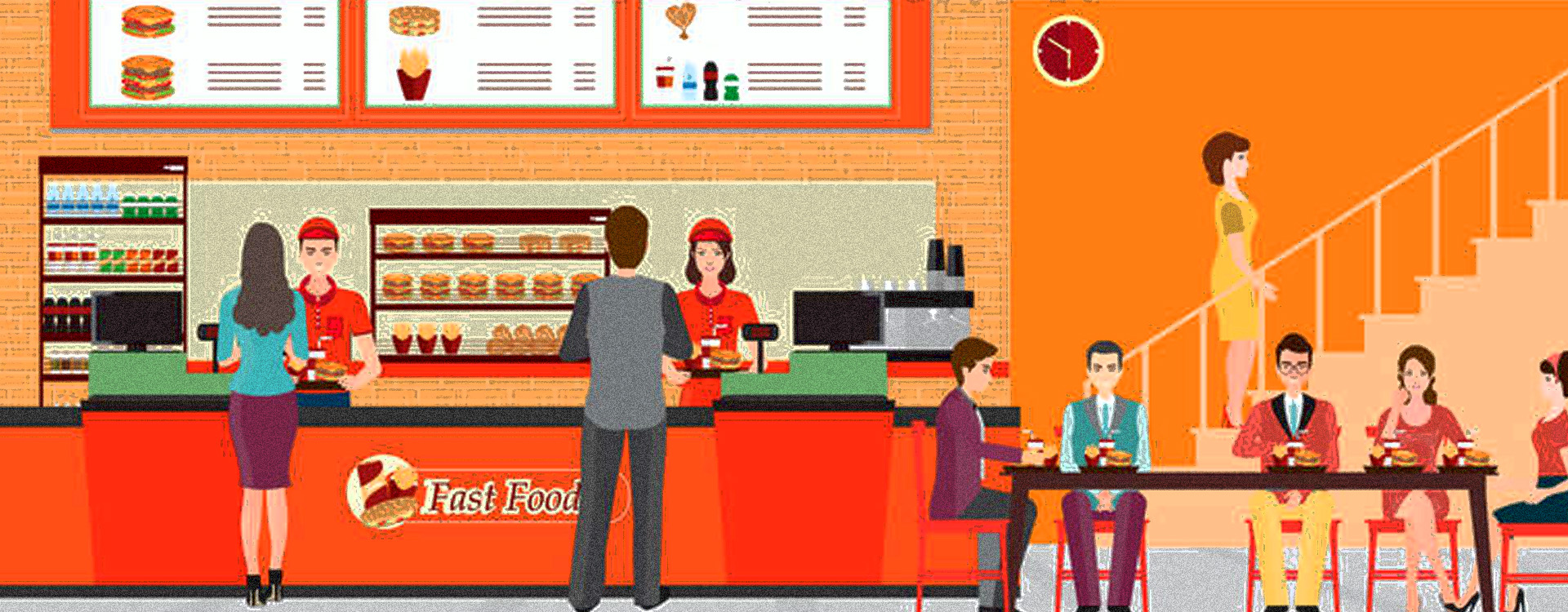How many times have you ordered a Pizza from Dominos or stopped by at Starbucks for your searing hot, no foam latte? Too many times to count. What’s great about these eateries is that you can quickly pick-up your order without the fuss of getting proper seating, using tablecloths and cutlery, or paying for an exorbitant bill. This is what the concept of a QSR is all about.
What is the QSR Sector in the Food Industry?
The QSR Sector is a part of the Restaurant and Food Services Industry. QSR or Quick Service Restaurants churn out food quickly and efficiently. It is synonymous with fast-food restaurants. These restaurants generally do not provide table service, although they cook food exceptionally fast compared to a fine dine or a gourmet restaurant.
3 Key Reasons why it’s a Massive Market
Targets age demographic that will elevate sales
The QSR Market in India is a potentially massive market because the target demographic of the sector mainly comprises Millennials with an optimal age-group demographic between 15-35 years. This age demographic will elevate sales since India’s median age is much lower at 26.7 years in comparison with countries like the United States or China.
Restaurant food consumption boom
The per capita income is rapidly increasing in India with Millennials fuelling the country’s consumption boom. Also, Millennials have higher disposable incomes which they are spending heavily on outside food every month.
Pan-India Internet Penetration
The Internet Penetration is deeply seeping into Tier II, III cities as well as villages. The market is slowly expanding to encompass a pan-India presence. As such, the market opportunity is massive in QSR.
Why is it attracting Investors’ Interest?
Owing to the pandemic-friendly business model, QSR chains have tremendous opportunities to engage with big companies, especially in the fine dining sector. The Indian QSR sector is also being looked at as a hotbed of opportunities by Private Equity (PE) funds and Venture Capitalists (VCs). QSRs with well-established online and take away models have a chance of being chosen by big companies.
The two key factors attracting interest from large PE funds and VC’s are:
Cheaper, versatile menus
Food churned out by QSRs is much more affordable when compared to fine dine restaurants. It is age, diet, and budget inclusive which will obviously attract a larger consumer base.
Low investments
QSRs require low investments since the interior set-up costs are eliminated. Since they are mainly focused on delivering food at top speed, sophisticated high-paid staff and expensive infrastructure investments are not needed. Thus, the business model looks profitable for investors.
Industry Forecasts and Expectations by 2025
The Indian QSR Market is estimated to be valued at INR 51000 Cr by the end of this year. It is projected to grow at a CAGR (compound annual growth rate) of over 18% between 2021-25. The Restaurant and Food Service Industry will record a rise in CAGR by about 10.4% in 5 years between 2018-2022. The QSR sector in particular will achieve significant growth while the industry as a whole is forecasted to be worth INR 5.5 Tn by 2022.
The Growth of QSR Start-up Charcoal Eats
Charcoal Eats, a QSR start-up recently raised INR 1 Cr in Growth Capital from GetVantage, a Revenue Based Financing Lender. It’s a food tech brand that has completed over 2 Mn orders since its inception owing to its high-growth phase business model and high-speed execution in delivery of food. Charcoal Eats’ success is attributed to the fact that they are a digital-first food tech brand that’s steadily serving more plates across the country.
‘‘
QSR or Quick Service Restaurants churn out food quickly and efficiently.
What’s in it for me?
The QSR sector is one part of the food industry that has managed to sustain the pandemic and is standing strong. It’s a very pandemic friendly business to venture into, because its mainly focused on quick takeaways and home delivery of food. You can provide safe, hygienic, and customised orders to customers at a low cost which will help you sustain and eventually make a profit.
QSR start-ups are also taking the D2C (direct to consumer) route to maximise their reach and to eliminate aggregator charges. Taking the D2C route will further elevate the opportunity for small businesses venturing into this space. The youth of India with disposable and dual incomes are your ideal customer profile. You can easily diversify to varying taste palettes, budgets, and diet needs since your entire investment can be dedicated to food production alone.




